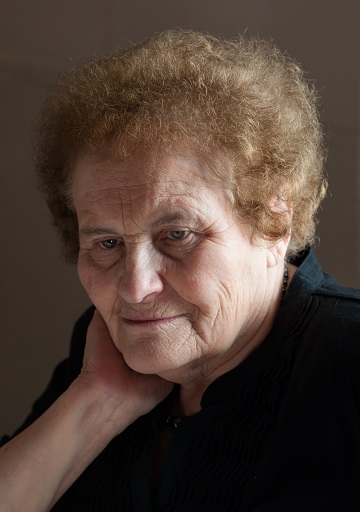
Marina Ratner
Professor of Mathematics, Emerita
Marina Ratner passed away on July 7, 2017, at her home in El Cerrito, California. Born in Moscow on October 30, 1938, Ratner studied at Moscow State University, emigrated to Israel in 1971, and joined the University of California, Berkeley’s Department of Mathematics in 1975. She was an Alfred P. Sloan Research Fellow (1977-79), Miller Research Fellow (1985-86), and John Simon Guggenheim Fellow (1987-88).
Ratner’s parents were scientists who, like Marina herself, suffered from the anti-Semitism which was rife in the Soviet Union under Stalin and continued after a short respite during which Ratner was admitted to Moscow State University for undergraduate studies and later for the Ph.D. program. She received her doctorate in 1969 under the supervision of Yakov Sinai with a dissertation, entitled “Geodesic Flows on Unit Tangent Bundles of Compact Surfaces of Negative Curvature”. She was initially employed at the High Technical Engineering School in Moscow but lost her job in 1970 when she applied to emigrate to Israel. After working at the Hebrew University of Jerusalem from 1971 to 1975, she came to Berkeley as an acting assistant professor of mathematics. She became a regular faculty member in 1976 and was promoted to associate professor in 1979 and to professor in 1982. She “retired” in 2011 but continued to teach Math 104 and Math 135 classes through the spring semester of 2017.
Marina Ratner's research on homogeneous dynamics, including landmark results on classifying invariant measures and invariant sets under the action of unipotent groups, is a cornerstone of modern ergodic theory. Her Orbit Closure, Measure Classification, and Equidistribution theorems give very precise information showing remarkably rigid behavior of flows generated by nilpotent elements of Lie algebras acting on homogeneous spaces covered by the corresponding Lie groups. Her work has had remarkable impact in various branches of mathematics that are not obviously related to ergodic theory, such as the distribution of values of quadratic forms.
Ratner received the Ostrowski Prize in 1993 and the National Academy of Sciences’ John J. Carty Award for the Advancement of Science in 1994, and she was (as had been only two women up to that time) a plenary speaker at the quadrennial International Congress of Mathematicians in 1994. She was a member of the National Academy of Sciences and the American Academy of Arts and Sciences.
Unlike many distinguished mathematicians whose best work was done before the age of 40, Ratner obtained her most important results in her forties and fifties. As a result, she was not eligible for the Fields Medal for which she would have been a strong candidate, but her work played an important role in that of subsequent medalists Elon Lindenstrauss and Maryam Mirzakhani.
Professor Ratner was also an outstanding and beloved teacher who, despite her exacting standards, consistently received extremely high ratings from her students. In 2004, she was awarded UC Berkeley’s Donald Sterling Noyce Prize for Excellence in Undergraduate Teaching in the physical, chemical, and mathematical sciences.
Ratner is survived by her daughter Anna Ratner, son-in-law Charles Cox, grandchildren Bryan and Maya, and nephews Michael Bialy (a professor of mathematics at Tel Aviv University) and Alex Bialy.
Note: Some of the content above, along with much more information about Marina Ratner, can be found at the MacTutor History of Mathematics archive of the University of St. Andrews (http://www-history.mcs.st-andrews.ac.uk/Biographies/Ratner.html).
Alan Weinstein
2019
Photo credit: Lenya Ryzhik
